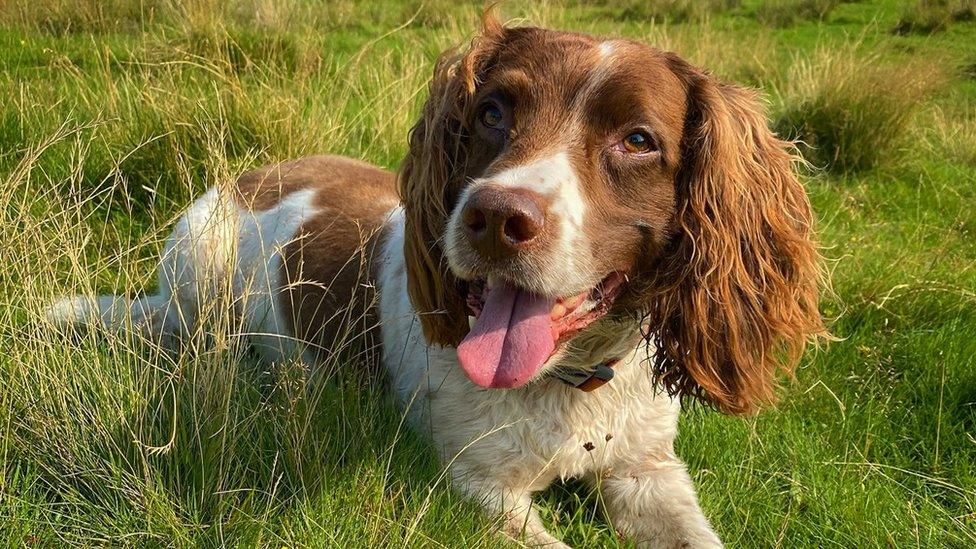Air ambulance 'difference between life and death'
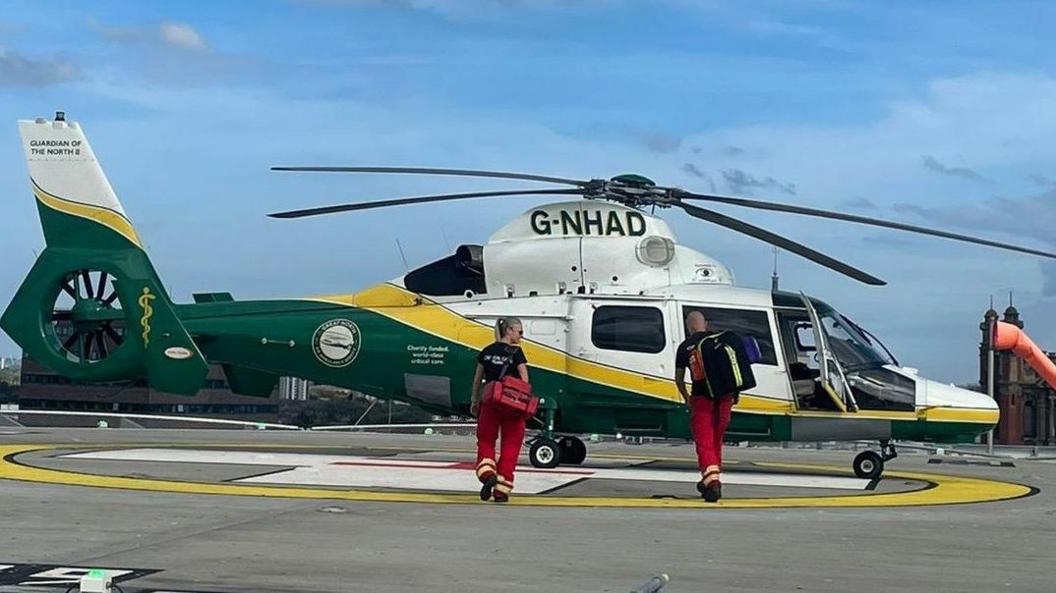
GNAAS has launched a fundraising campaign for a third helicopter
- Published
An air ambulance service has warned it may need to scale back its operations unless it can raise enough money to prop up its ageing fleet.
The Great North Air Ambulance Service (GNAAS) currently has two helicopters which respond to more than 2,000 critically ill or injured people in north-east England, Cumbria, North Yorkshire and the Isle of Man.
The charity said it needed to raise £2.5m for a deposit for a third helicopter as its current fleet was coming to the end of its "economically viable life".
Joe Garcia, CEO at GNAAS, said having a third aircraft could mean "the difference between life and death" for patients.
"Returning to a three-helicopter fleet means that when one aircraft is undergoing essential maintenance, two more are ready to answer the call," he said.
The charity, which has bases in the North East and Cumbria, said it was "facing a crossroads" due to high maintenance costs and an "increasing scarcity" of spare parts for its Dauphin N3 helicopters.
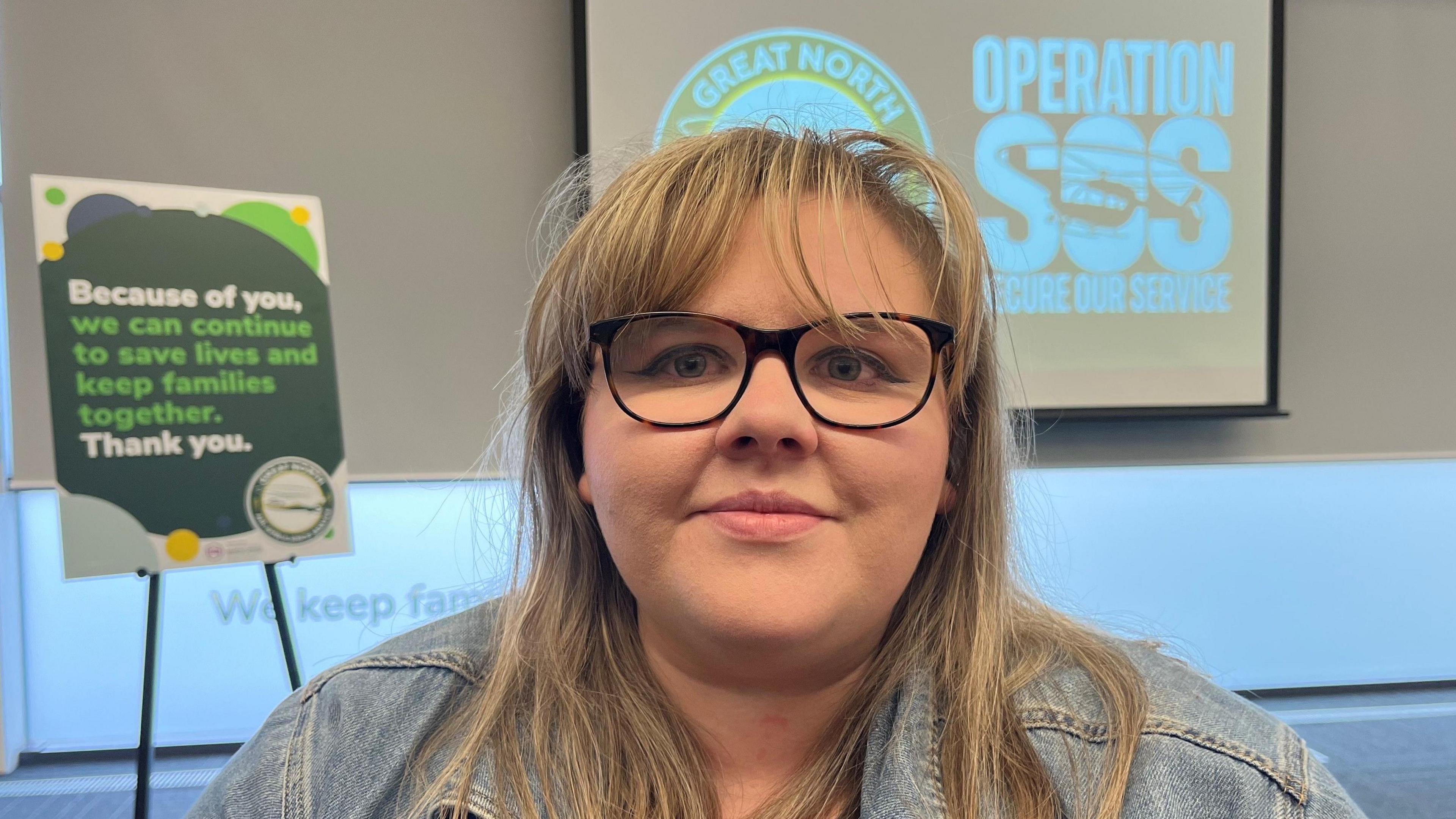
Sam Hymers said GNAAS has enabled her to go on and have a family after her life was saved
Sam Hymers, 29, said the charity saved her life following a car crash she was involved in on 15 July 2019.
Mrs Hymers said she was driving home from work when another vehicle crashed into the side of her.
She sustained several injuries to the right hand side of her body and said she does not remember anything from accident or two days prior to it.
"The last thing I remember was going to the Durham Gala, I don't remember even going to work that day," she said.
"From what I have been told, two air ambulances were dispatched to the roadside.
"After I was cut out of the car I had to be resuscitated and had to have a blood transfusion on the roadside.
"If I had not been flown to the hospital I probably wouldn't be here.
"I wouldn't be married and wouldn't have my little girl."
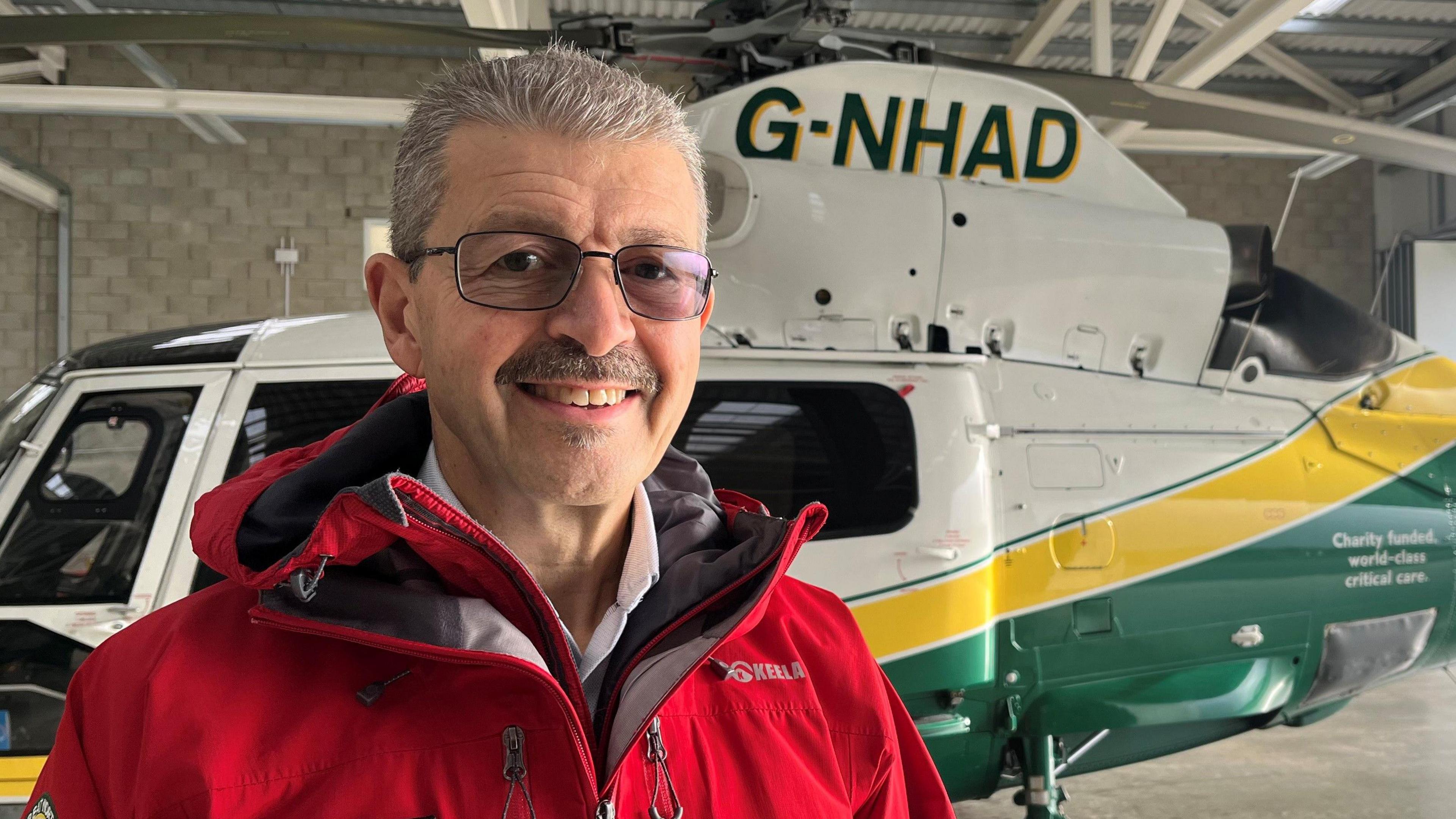
Joe Garcia MBE, chief executive officer at GNAAS, says he hopes the public will support their fundraising appeal
Mr Garcia said the charity's third helicopter was decommissioned in March 2024 due to it no longer being fit for purpose.
The entire fleet needs changing over the next ten years to secure a "more modern, sustainable aircraft that is still in production."
He said: "We have two aircrafts and we fly two on a daily basis, but we have significant maintenance programmes."
Mr Garcia told BBC Radio Tees that one of the aircraft was out of action for nine weeks in March due to a problem with its main rota shaft.
"That cost us £181,000 for one spare part and the only available part was found in America, so there was only one serviceable component in the world," he said.
"That's why we need to consider changing the entire fleet.
"While we still respond in cars when we can't fly, it is still a challenge to get to patients as quickly as we need to."
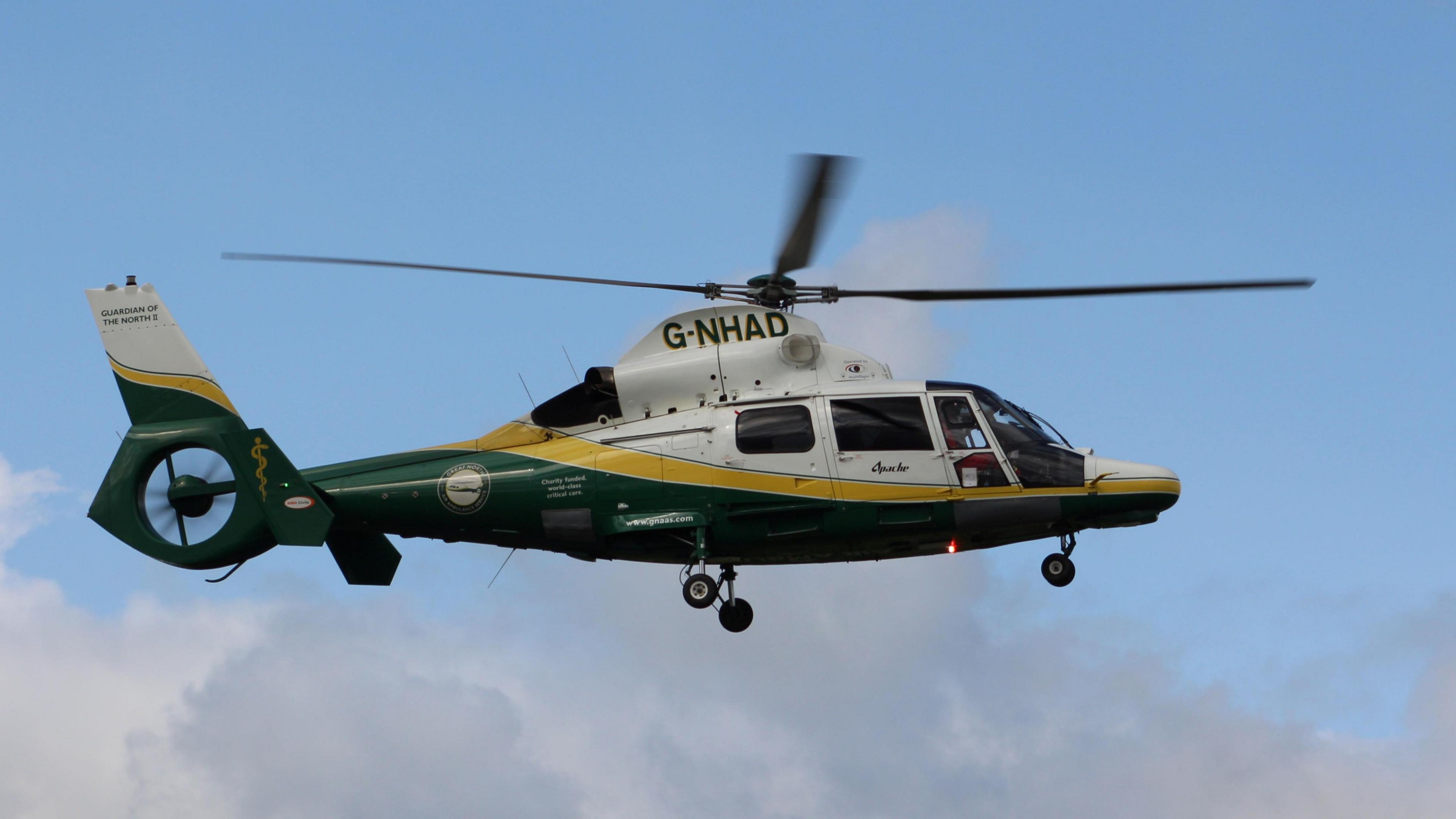
GNAAS said it responded to more than 2,000 patients every year
The charity said, as demand for its service continued to grow, it had designed a blueprint to operate with three helicopters and offering more advanced medical care.
GNAAS said it had received a "significant donation" covering 8% of its fundraising target for what it called Operation SOS: Secure Our Service.
Mr Garcia added: "The public's support is the foundation of our service. They have fuelled our missions and equipped our crews.
"We would not turn to them with such a significant request unless it was absolutely critical."
Follow BBC North East on X, external and Facebook, external and BBC Cumbria on X, external and Facebook, external and both on Nextdoor and Instagram, external.
Get in touch
Do you have a story suggestion for BBC North East & Cumbria?
Related topics
- Published23 July
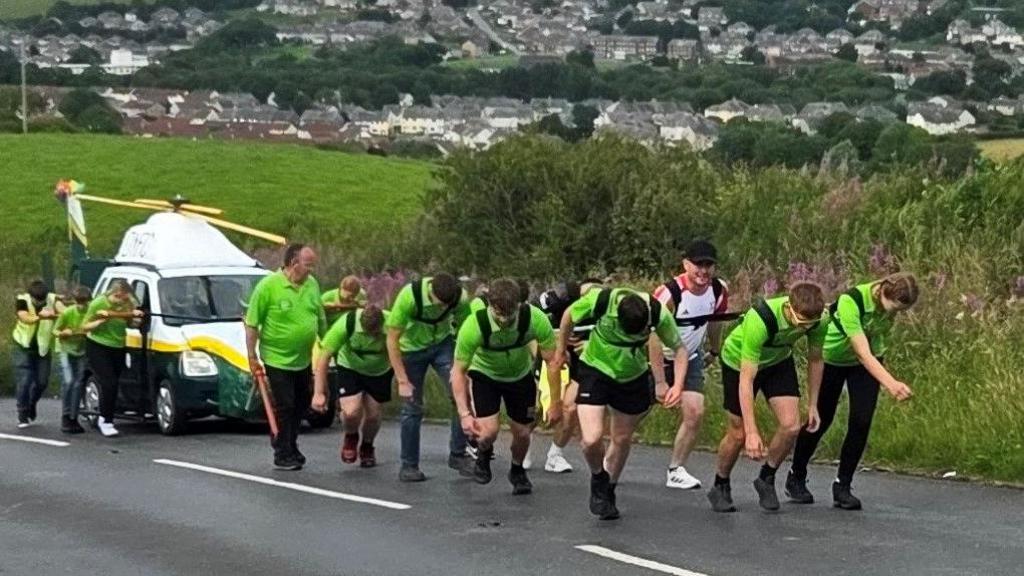
- Published18 December 2022
